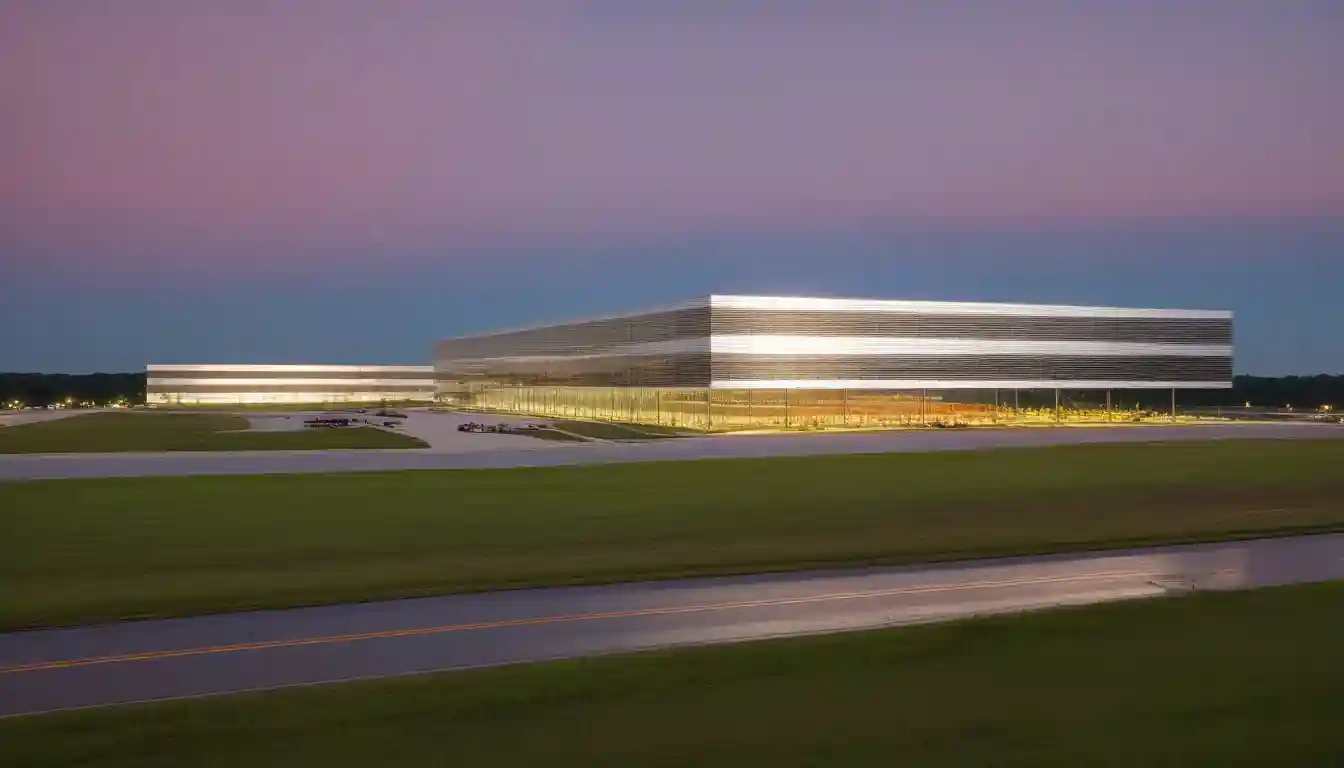Google’s Big Bet in Arkansas: Chasing Power in America’s AI Arms Race
West Memphis data center marks a new front in the battle for energy, speed, and influence
WEST MEMPHIS, Ark. — West Memphis isn’t the sort of place you’d expect to find the cutting edge of Silicon Valley. For years, this small delta city just across the river from Memphis has been better known for truck stops and barbecue joints than billion-dollar tech projects. But that changed Thursday when Google unveiled plans for a massive data center campus—one of the largest corporate investments in Arkansas history.
The project, sprawling over 1,000 acres, signals more than just another shiny building. It’s a gamble worth billions that the future of artificial intelligence won’t be decided on the coasts but deep in America’s energy-rich interior. While Microsoft and Amazon have favored Virginia and Ohio for their data hubs, Google is betting that Arkansas—cheap land, flexible regulations, and plenty of electricity—offers the winning combination.
At its heart, this isn’t about zip codes. It’s about power. Not political power, but literal megawatts. AI eats electricity, and training the most advanced systems requires a staggering supply of it.
Did you know Arkansas’ poverty rate sits around 15.7%–16%, placing it among the highest in the nation, and roughly one in five children—about 21%—live in poverty, with pronounced disparities where an estimated 43% of Black children, 19% of Hispanic/Latino children, and 15% of non-Hispanic White children are affected.
Faster Permits, Fewer Roadblocks
So why Arkansas? Speed. State leaders managed to pull off what usually takes over a year in just six months—fast-tracking permits and clearing red tape.
Governor Sarah Huckabee Sanders’ administration pushed through the IMPACT package earlier this year. Inside was Act 548, a targeted tax break for data centers, plus measures letting utilities invest in new infrastructure without waiting years for regulatory sign-off.
The message was simple: Arkansas could move at a pace coastal states can’t. And in a race where quarters, not years, matter, that kind of head start is priceless.
As one industry analyst put it, “Google wasn’t just buying land and electricity. They were buying time.”
Add to that the city’s geography—sitting along the Mississippi River, with multiple fiber optic connections and none of the congestion strangling data centers in Northern Virginia—and the choice looks even more strategic.
Powering the Machines of the Future
The centerpiece of Google’s plan is an energy model that rewrites the playbook. The company isn’t just building servers and cooling towers. It’s building its own energy ecosystem—solar farms, battery storage, and a dedicated partnership with Entergy Arkansas.
The arrangement promises that ratepayers won’t shoulder higher bills for the project, since Google will cover the full cost of powering the facility. Still, critics warn that transmission upgrades and grid reinforcement often sneak into utility rate bases anyway, which means regular folks eventually share the bill.
At full buildout, the campus could consume between 500 and 800 megawatts. That’s enough juice to run an entire mid-sized American city.
Jobs, Promises, and Reality
The economic pitch to West Memphis is clear: jobs and investment. Google says the project will bring thousands of temporary construction jobs and hundreds of permanent roles once the data centers go live.
But here’s the rub. Data centers don’t employ masses of people. They’re capital-heavy and labor-light. The permanent jobs are highly skilled positions—engineers, technicians, cloud specialists—that often require advanced training. Many locals may not qualify without significant retraining.
That doesn’t make the promise meaningless, though. For a city with higher-than-average poverty rates and lagging household income, the symbolism is powerful. Arkansas needed Google far more than Google needed Arkansas, and state officials were willing to bend over backward to prove it.
Wall Street’s View
For investors, the move is a double-edged sword. Alphabet, Google’s parent company, is already spending at record levels to expand AI capacity. This deal adds even more pressure on near-term cash flow. But letting rivals like Microsoft’s Azure or Amazon Web Services outpace them in capacity isn’t an option either.
Utilities like Entergy may stand to gain more directly. A guaranteed industrial customer means steady regulated earnings. Equipment makers—those selling power systems, cooling gear, and other data center essentials—will also ride the wave.
The semiconductor angle, meanwhile, is murkier. Google’s own chips compete with outside vendors, so the broader impact depends on how internal designs stack up against offerings from Nvidia or AMD.
Not All Smooth Sailing
Beneath the big headlines, risks loom. West Memphis sits on a floodplain. With climate volatility rising, water and cooling needs could clash with agriculture and municipal demands.
Then there’s politics. If locals don’t see the jobs and prosperity they’ve been promised, frustration could build. Future lawmakers might try to claw back incentives or impose stricter rules.
Energy is another wild card. Google has to line up solar, batteries, and transmission exactly in sync with the data center rollout. Any delays—from supply chain hiccups to regulatory slowdowns—could cause costly setbacks.
The Bigger Picture
Google isn’t the first tech giant to head south for power and permissive regulators. Meta made a similar move in Louisiana, and others are circling the region. The playbook is simple: skip the headaches of coastal congestion and go where utilities can build big, fast, and cheap.
What’s not clear is whether Arkansas can parlay this deal into a genuine tech hub or whether it remains a one-off win. Building an economy around data centers alone is like planting crops without water—you’ll get one harvest, but not lasting growth. Long-term success depends on how well the state invests in its people, its infrastructure, and its ability to keep pace with the breakneck demands of the digital age.
One thing is certain: AI runs on power, and Google is staking billions on where that power flows freely. For now, that path runs straight through West Memphis.
Disclaimer: This article provides general analysis, not financial advice. Readers should consult professional advisors before making investment decisions.
